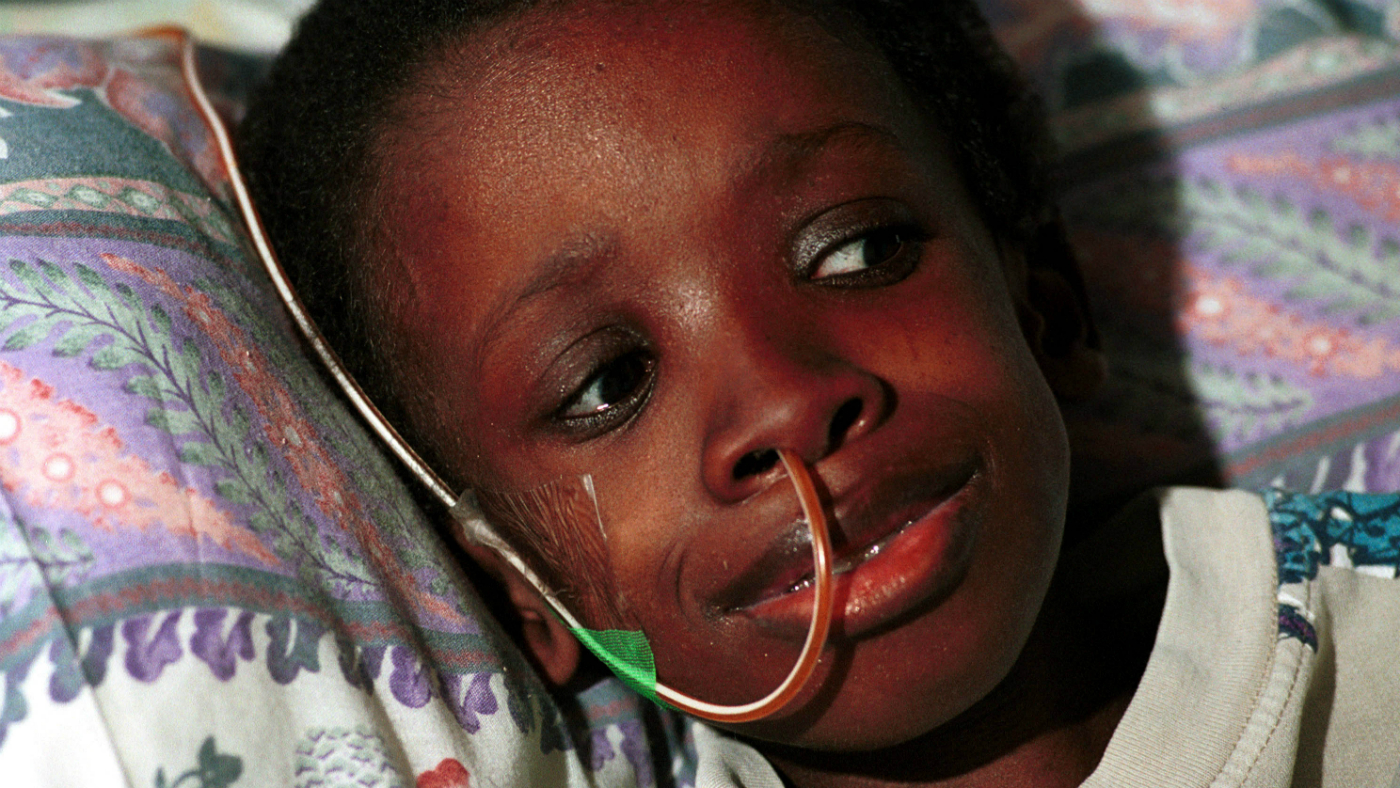Who is Nkosi Johnson?
HIV campaigner who died aged 12 is commemorated by Google Doodle

A free daily email with the biggest news stories of the day – and the best features from TheWeek.com
You are now subscribed
Your newsletter sign-up was successful
Today’s Google Doodle on the search engine’s home page commemorates the life of Nkosi Johnson on what would have been the Aids campaigner’s 31st birthday.
Born HIV positive on 4 February 1989 in Johannesburg, South Africa, Johnson campaigned for the rights of children with Aids before the disease took his life in 2001 at the age of just 12. At that time he was the longest-surviving child born with HIV.
Despite the short span of his life, Johnson made a considerable impact on the world stage by raising awareness of the effects of the disease and condemning government policies that had placed restrictions on him as a sufferer.
The Week
Escape your echo chamber. Get the facts behind the news, plus analysis from multiple perspectives.

Sign up for The Week's Free Newsletters
From our morning news briefing to a weekly Good News Newsletter, get the best of The Week delivered directly to your inbox.
From our morning news briefing to a weekly Good News Newsletter, get the best of The Week delivered directly to your inbox.
Johnson was born Xolani Nkosi, the son of Nonhlanhla Daphne Nkosi, an HIV-positive woman. He never knew his father and was adopted by Gail Johnson, a public relations officer from an Aids care centre when his mother became unable to care for him, the Evening Standard reports.
The Independent says that Johnson was “thrust into the public eye in 1997 when he was refused entry to school because he was HIV-positive”, a decision which caused significant political issues for South Africa.
–––––––––––––––––––––––––––––––For a round-up of the most important stories from around the world - and a concise, refreshing and balanced take on the week’s news agenda - try The Week magazine. Start your trial subscription today –––––––––––––––––––––––––––––––
The Standard adds that in response, his adoptive mother organised workshops to educate people about Aids, and her efforts led parliament to pass legislation that required schools to uphold anti-discrimination policies that protected children like Johnson.
A free daily email with the biggest news stories of the day – and the best features from TheWeek.com
Johnson was eventually admitted to the school in the same year his own mother died, and shortly after his health began to deteriorate. According to the BBC, his adoptive mother subsequently helped him set up Nkosi’s Haven, a non-government organisation “helping to support mothers and children whose lives have been impacted by HIV and Aids.
“As a result of his campaigning Nkosi became a key-note speaker at the International Aids conference in 2000 when he was just 11,” the broadcaster says.
At the opening event he said: “Care for us and accept us, we are all human beings. We are normal. We have hands. We have feet. We can walk, we can talk, we have needs just like everyone else. Don’t be afraid of us – we are all the same.”
On the Nkosi’s Haven website, he is described as a “national figure in the campaign to de-stigmatise Aids, with provincial education departments across South Africa moving to draw up new policies”.
In honour of his efforts to destigmatise the disease, the International Children’s Peace Prize was created in 2005, with Johnson being posthumously awarded the inaugural prize.
Johnson is buried at the Westpark Cemetery in Johannesburg. Shortly after his death, former South African PM Nelson Mandela paid tribute to him as an “icon of the struggle for life”.
-
 How to Get to Heaven from Belfast: a ‘highly entertaining ride’
How to Get to Heaven from Belfast: a ‘highly entertaining ride’The Week Recommends Mystery-comedy from the creator of Derry Girls should be ‘your new binge-watch’
-
 The 8 best TV shows of the 1960s
The 8 best TV shows of the 1960sThe standout shows of this decade take viewers from outer space to the Wild West
-
 Microdramas are booming
Microdramas are boomingUnder the radar Scroll to watch a whole movie
-
 Epstein files topple law CEO, roil UK government
Epstein files topple law CEO, roil UK governmentSpeed Read Peter Mandelson, Britain’s former ambassador to the US, is caught up in the scandal
-
 Iran and US prepare to meet after skirmishes
Iran and US prepare to meet after skirmishesSpeed Read The incident comes amid heightened tensions in the Middle East
-
 Israel retrieves final hostage’s body from Gaza
Israel retrieves final hostage’s body from GazaSpeed Read The 24-year-old police officer was killed during the initial Hamas attack
-
 China’s Xi targets top general in growing purge
China’s Xi targets top general in growing purgeSpeed Read Zhang Youxia is being investigated over ‘grave violations’ of the law
-
 Panama and Canada are negotiating over a crucial copper mine
Panama and Canada are negotiating over a crucial copper mineIn the Spotlight Panama is set to make a final decision on the mine this summer
-
 Why Greenland’s natural resources are nearly impossible to mine
Why Greenland’s natural resources are nearly impossible to mineThe Explainer The country’s natural landscape makes the task extremely difficult
-
 Iran cuts internet as protests escalate
Iran cuts internet as protests escalateSpeed Reada Government buildings across the country have been set on fire
-
 US nabs ‘shadow’ tanker claimed by Russia
US nabs ‘shadow’ tanker claimed by RussiaSpeed Read The ship was one of two vessels seized by the US military